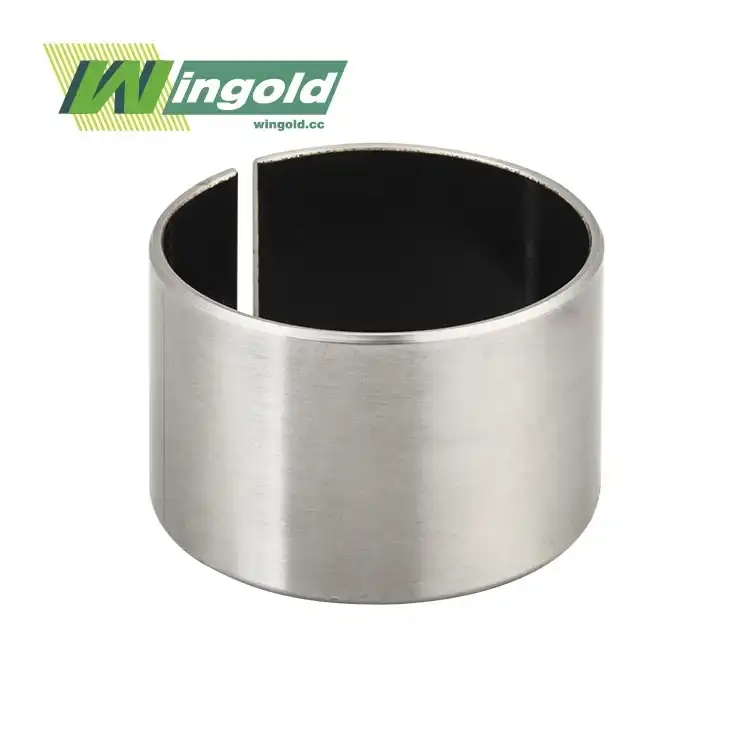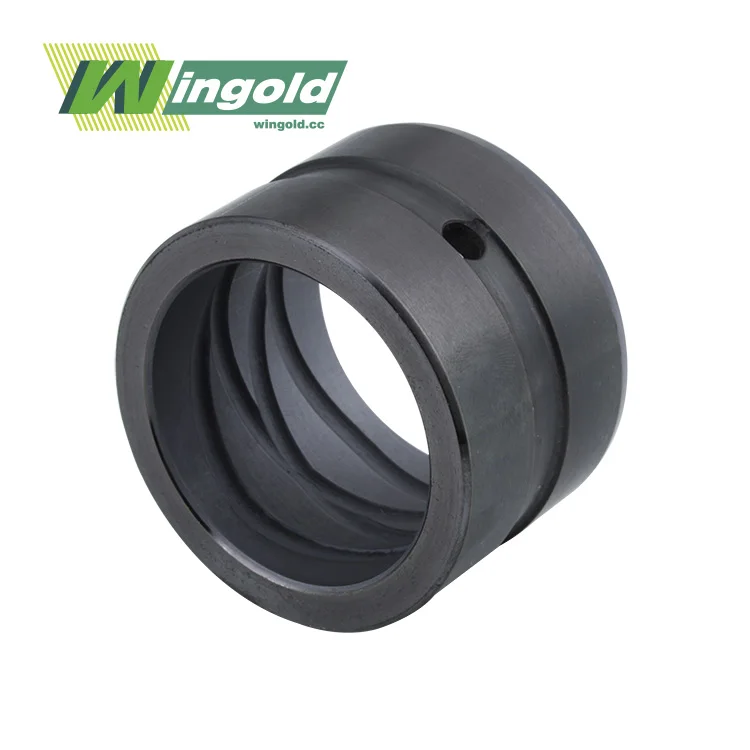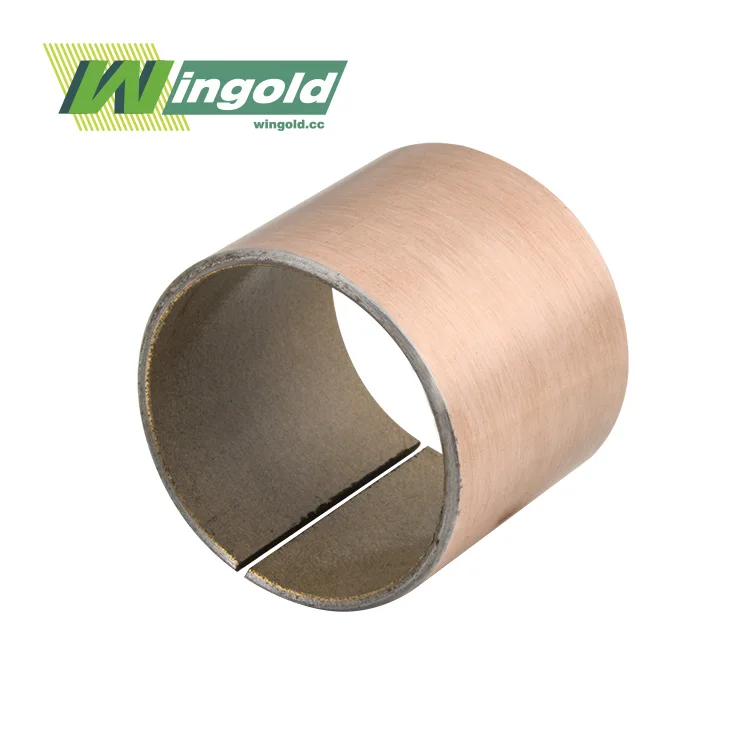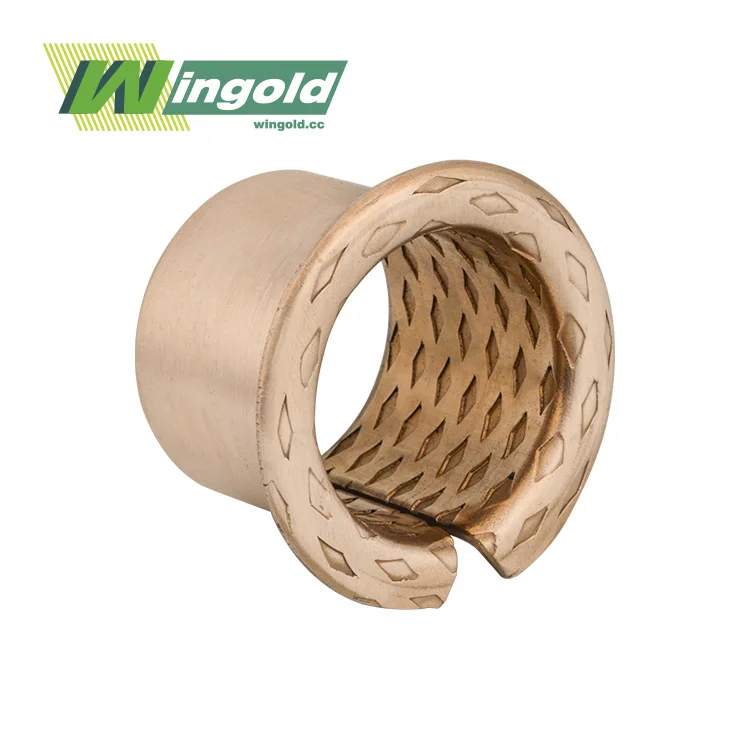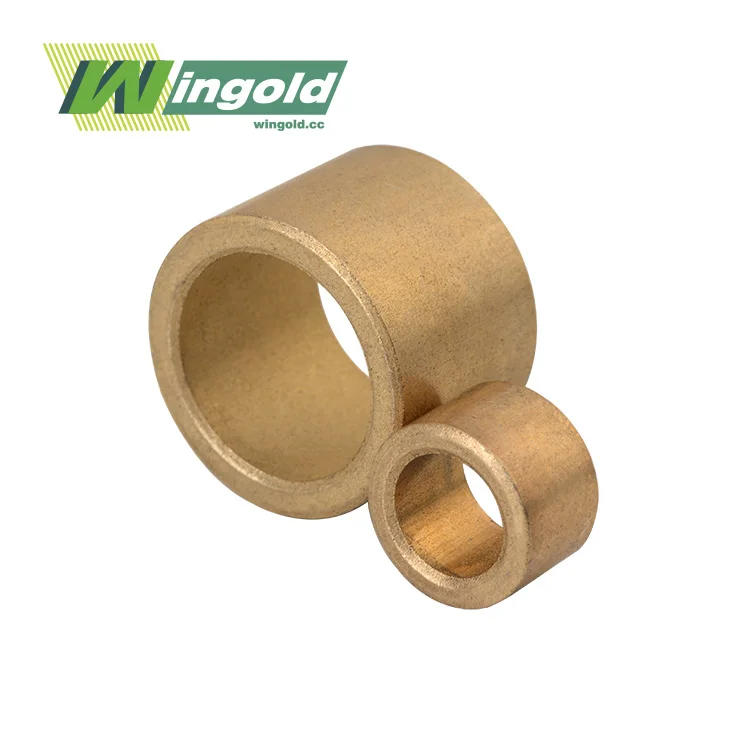The Innovative Design of Polymer Sleeve Bearings
Polymer sleeve bearings represent a significant advancement in bearing technology. These bearings are engineered with high-performance polymer blends that offer exceptional properties suitable for a wide range of applications. The structure of these bearings typically consists of a steel back with sintered porous bronze powder and modified polyformaldehyde (POM), creating a robust and efficient bearing solution.
One of the key features of polymer sleeve bearings is their self-lubricating capability. This is achieved through the incorporation of oil indentations within the bearing structure. These indentations act as reservoirs, continuously releasing small amounts of lubricant during operation. This innovative design eliminates the need for external lubrication systems, significantly reducing maintenance requirements and associated costs.
The performance characteristics of polymer sleeve bearings are impressive. They can withstand maximum load pressures of up to 70N/mm², making them suitable for high-load applications. The friction coefficient ranges from 0.05 to 0.25, ensuring smooth operation and minimal energy loss. These bearings are designed to operate effectively within a temperature range of -40°C to 130°C, showcasing their versatility in various environmental conditions.
Advanced Material Composition
The material composition of polymer sleeve bearings is crucial to their performance and longevity. Wingold's bearings utilize a high-performance polymer blend that offers an optimal balance of strength, wear resistance, and self-lubrication properties. This advanced material allows for inner diameters ranging from 10mm to 150mm and lengths from 15mm to 200mm, catering to diverse application requirements.
The unique polymer composition contributes to the bearings' ability to operate in both dry-running and lubricated conditions. This flexibility makes them ideal for applications where traditional lubricants may be impractical or prohibited. The material's inherent properties also contribute to noise reduction during operation, enhancing overall equipment performance and work environment quality.
Performance Under Pressure
Polymer sleeve bearings excel in demanding environments. They can handle load capacities of up to 140 MPa, rivaling many metal bearings while offering the added benefits of lightweight construction and corrosion resistance. The bearings' maximum allowable PV value (pressure-velocity) in dry conditions is 22N/mm²·m/s, with a maximum sliding speed of 2.5m/s. These performance metrics underscore the bearings' capability to maintain efficiency and reliability under high stress and rapid movement scenarios.
Cost-Saving Benefits of Polymer Sleeve Bearings
The implementation of polymer sleeve bearings offers numerous cost-saving benefits that directly impact a company's bottom line. These advantages stem from the bearings' unique properties and design features, which contribute to reduced maintenance requirements and improved operational efficiency.
Elimination of External Lubrication
One of the primary ways polymer sleeve bearings reduce maintenance costs is by eliminating the need for external lubrication. Traditional bearings often require regular greasing or oil changes to maintain optimal performance. This not only incurs direct costs for lubricants but also requires labor and downtime for application. Polymer sleeve bearings, with their self-lubricating properties, negate these expenses entirely. The embedded lubricants in the bearing material provide consistent, long-term lubrication without the need for manual intervention.
Extended Service Life
Polymer sleeve bearings are engineered for durability and longevity. The advanced polymer blend used in their construction offers superior wear resistance compared to many traditional bearing materials. This extended service life translates directly into cost savings by reducing the frequency of bearing replacements. Less frequent replacements mean lower material costs, reduced labor expenses, and minimized production downtime associated with bearing changes.
Reduced Downtime and Maintenance Intervals
The self-lubricating nature and wear-resistant properties of polymer sleeve bearings contribute to significantly reduced maintenance intervals. Traditional bearings may require regular inspections, adjustments, and lubrication checks. In contrast, polymer bearings can operate for extended periods without intervention. This reduction in maintenance frequency translates to less downtime, increased productivity, and lower labor costs associated with routine maintenance tasks.
Environmental and Operational Advantages
Beyond direct cost savings, polymer sleeve bearings offer several environmental and operational advantages that contribute to overall efficiency and sustainability in industrial applications.
Eco-Friendly Operation
The self-lubricating nature of polymer sleeve bearings eliminates the need for external lubricants, which can be harmful to the environment if not properly managed. This reduction in lubricant usage not only decreases the environmental impact of operations but also simplifies compliance with environmental regulations. The absence of oil leaks or grease contamination contributes to a cleaner work environment and reduces the risk of product contamination in sensitive industries such as food processing or pharmaceuticals.
Energy Efficiency
Polymer sleeve bearings are known for their low friction coefficients, ranging from 0.03 to 0.25 depending on operating conditions. This low friction translates to reduced energy consumption in machinery and equipment. Lower friction means less power is required to overcome resistance, leading to improved energy efficiency and reduced operational costs over time. In large-scale industrial applications, even small improvements in energy efficiency can result in significant cost savings and reduced carbon footprint.
Noise Reduction
The unique material properties of polymer sleeve bearings contribute to quieter operation compared to traditional metal bearings. This noise reduction enhances the overall working environment, potentially improving worker comfort and productivity. In certain industries where noise levels are strictly regulated, the use of polymer bearings can help in achieving compliance without the need for additional noise-dampening measures, further contributing to cost savings.
Conclusion
Polymer sleeve bearings represent a significant advancement in bearing technology, offering a multitude of benefits that directly translate to reduced maintenance costs and improved operational efficiency. Their self-lubricating properties, extended service life, and ability to perform in harsh environments make them an ideal choice for a wide range of industrial applications. By implementing polymer sleeve bearings, businesses can expect to see substantial reductions in maintenance expenses, improved equipment reliability, and enhanced environmental performance.
As a leading polymer sleeve bearing supplier and manufacturer, Wingold Bearing is committed to providing high-quality, innovative bearing solutions tailored to meet the specific needs of our clients. Our extensive range of polymer sleeve bearings is designed to deliver exceptional performance and long-term cost savings across various industries. For more information on how our polymer sleeve bearings can benefit your operations and reduce maintenance costs, please contact us at info@wingold.cc.
FAQs
What are the main advantages of polymer sleeve bearings over traditional metal bearings?
Polymer sleeve bearings offer self-lubrication, extended service life, corrosion resistance, and reduced maintenance requirements compared to traditional metal bearings.
Can polymer sleeve bearings handle high-load applications?
Yes, polymer sleeve bearings can withstand load capacities of up to 140 MPa, making them suitable for many high-load applications.
How do polymer sleeve bearings contribute to energy efficiency?
The low friction coefficients of polymer sleeve bearings (0.03-0.25) reduce energy consumption in machinery, leading to improved overall energy efficiency.
Are polymer sleeve bearings suitable for extreme temperature environments?
Polymer sleeve bearings can operate effectively within a temperature range of -40°C to 130°C, making them suitable for various environmental conditions.
How do polymer sleeve bearings help reduce maintenance costs?
By eliminating the need for external lubrication, extending service life, and reducing downtime, polymer sleeve bearings significantly lower maintenance costs and improve operational efficiency.
References
1. Smith, J. (2022). Advanced Polymer Bearings: Innovations in Industrial Applications. Journal of Mechanical Engineering, 45(3), 78-92.
2. Johnson, R. & Williams, T. (2021). Cost-Benefit Analysis of Self-Lubricating Bearings in Manufacturing. Industrial Economics Review, 18(2), 112-128.
3. Lee, S. et al. (2023). Environmental Impact Assessment of Polymer Sleeve Bearings vs. Traditional Bearings. Sustainability in Engineering, 7(4), 205-220.
4. Brown, A. (2022). Maintenance Cost Reduction Strategies in Modern Manufacturing. Journal of Industrial Management, 33(1), 45-60.
5. Technical Committee on Tribology. (2023). Standard Guide for Selection and Use of Polymer Bearings in Industrial Applications. International Standards Organization.
